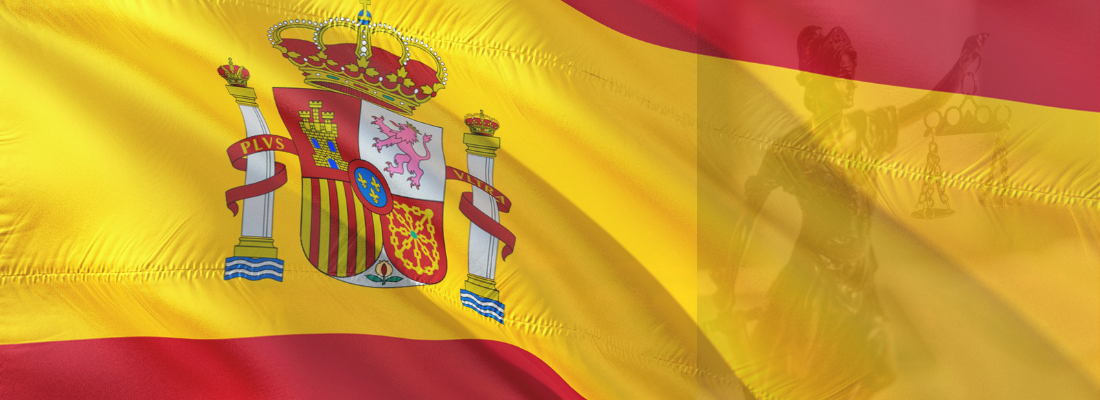The IBA expresses serious concerns about a potential erosion of the rule of law in Spain
Monday 13 November 2023

Español
IBA strongly supports the statements made by several bar associations, the government body of the judiciary, the judiciary and prosecutors’ associations as well as by numerous leading Spanish law firms
Statement by the President of the International Bar Association Almudena Arpón de Mendívil Aldama:
The Spanish Socialist Workers Party (PSOE) reached an agreement (the ‘Agreement’) with the Catalonian party, Junts, on 9 November. The Agreement includes provisions which, if enforced, would seriously erode the rule of law in Spain. This provides for, inter alia, the establishment of commissions of inquiry during the next legislature to investigate judicial activities in the context of so-called ‘lawfare’ surrounding the Catalonian referendum and unilateral declaration of independence, potentially giving rise to actions for responsibility of the judiciary or legislative amendments.
The International Bar Association stresses, once again, the importance of and need for protection of a consolidated rule of law, based on the separation of powers, where the judiciary, acting independently and solely subject to the law, plays the central role of ensuring the fundamental rights of all citizens and the application of the entire legal system.
The reaction of the Spanish legal community has been unanimous condemning any potential attack to the independence of the judiciary, demonstrating the strength of the Spanish institutions and of its legal sector as guardians of the rule of law.
In this respect, the Madrid Bar Association has clearly stated:
The separation of powers, which is the basis of the democratic State and its mechanisms of checks and balances, impose full respect and submission to the courts of justice and their jurisdictional function.
The use of so-called ‘lawfare’ (use of justice for political purposes) referred to courts and tribunals has no place in a democratic state. Therefore, the creation of investigative parliamentary commissions engaged in the surveillance of the court’s activities, is unacceptable.
The submission of judges to the law and judicial independence is essential to the rule of law, and must be respected and abided to, by all public and private actors; this requires a call for responsibility.
The Spanish Constitution and the European Union Treaty govern all activities, including those of political parties; they must not only be assumed and applied, but also defended by all state powers and civil society.
Up to 15 bar associations have issued similar statements, a number that continues to increase, as well as leading Spanish legal institutions. The Standing Committee of the General Council of the Judiciary (CGPJ) has expressed its ‘frontal’ rejection of the Agreement because it implies ‘an inadmissible interference in judicial independence and a flagrant attack on the separation of powers’. The statement of the CGPJ, has been sent to the President of the European Commission, Ursula von der Leyen; the Vice-President Vera Jourova; the Commissioner for Justice, Didier Reynders; the President of the European Council, Charles Michel; and the head of European diplomacy, Josep Borrell, as well as to the President of the European Network of Councils for the Judiciary.
Furthermore, the four Spanish judges’ associations have shown, in a joint announcement, their rejection of the contents of the Agreement considering that it could facilitate ‘interference in judicial independence’ and potentially precipitate the ‘breakdown of the separation of powers’ in Spain.
In the same line, the three prosecutors’ associations have also issued statements to show their opposition to the Agreement, considering that the possibility of creating commissions of inquiry into judicial proceedings ‘represents an unprecedented attack on judicial independence that translates into an absolute disregard’ for the rule of law.
Finally, in an unprecedented move, numerous leading law firms in Spain have also issued public expressions of support of the rule of law and the independence of the judiciary, challenged by some of the provisions in the Agreement.
The IBA, as the global voice of the legal profession, unambiguously endorses all of the above statements aimed at protecting the rule of law in Spain, a country with a strong democracy rooted in the Rule of Law and in the division of powers.
ENDS
Notes to the Editor
-
The International Bar Association (IBA), the global voice of the legal profession, is the foremost organisation for international legal practitioners, bar associations and law societies. Established in 1947, shortly after the creation of the United Nations, with the aim of protecting and promoting the rule of law globally, the IBA was born out of the conviction that an organisation made up of the world's bar associations could contribute to global stability and peace through the administration of justice. The IBA acts as a connector, enabler, and influencer, for the administration of justice, fair practice, and accountability worldwide. The IBA has collaborated on a broad range of ground-breaking, international projects with the United Nations, the European Parliament, the Council of Europe, The Commonwealth, the Organisation for Economic Co-operation and Development (OECD), the World Trade Organization, the International Monetary Fund and the World Bank, among others.
-
Find the IBA on social media here:
